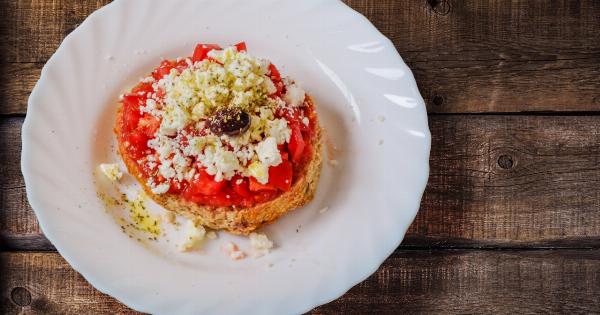Insulin is a hormone produced by the pancreas that plays a vital role in regulating blood sugar levels. It allows the cells in our body to take in glucose from the bloodstream and use it as a source of energy.
When we consume carbohydrates, our blood sugar levels rise, triggering the release of insulin to help process and distribute the glucose.
However, for individuals with impaired insulin response, this process may not function optimally.
Insufficient insulin production or decreased sensitivity to insulin can lead to elevated blood sugar levels, which, over time, can contribute to the development of various health issues such as prediabetes, type 2 diabetes, and metabolic syndrome.
The Importance of a Healthy Insulin Response
Having an efficient insulin response is crucial for maintaining overall health and preventing metabolic disorders.
When our insulin response is impaired, the body struggles to properly regulate blood sugar levels, leading to a condition known as insulin resistance.
Insulin resistance not only affects blood sugar control but also disrupts other metabolic processes. It can lead to fat accumulation, particularly in the abdominal area, and increase the risk of cardiovascular diseases.
Additionally, insulin resistance can interfere with the body’s ability to effectively break down and utilize stored fat, making weight management more challenging.
Natural Ways to Improve Insulin Response
Lifestyle modifications, such as adopting a healthy diet and engaging in regular physical activity, play a significant role in improving insulin response.
Alongside these lifestyle changes, certain herbs and natural supplements have been found to support and enhance insulin sensitivity and overall blood sugar control.
Gymnema Sylvestre
Gymnema sylvestre is a herb that has been used for centuries in Ayurvedic medicine for its potential therapeutic effects on blood sugar levels.
It is sometimes referred to as the “sugar destroyer” due to its unique ability to temporarily suppress the taste of sweetness.
Studies have shown that gymnema sylvestre can help stimulate insulin production in the pancreas and enhance the uptake of glucose by cells.
This can lead to improved glycemic control, making it a promising natural remedy for individuals with impaired insulin response.
Cinnamon
Cinnamon is a popular spice that not only adds flavor to our dishes but also possesses impressive health benefits. It contains bioactive compounds that can mimic the effects of insulin and improve insulin sensitivity in the body.
Researchers have found that incorporating cinnamon into the diet may help lower fasting blood sugar levels and improve the body’s ability to utilize glucose.
It may also have a positive impact on cholesterol and triglyceride levels, further promoting cardiovascular health.
Fenugreek
Fenugreek is an herb commonly used in Indian cuisine and traditional medicine. It contains soluble fiber and compounds that have been shown to enhance insulin sensitivity and improve blood sugar control.
Studies have indicated that fenugreek supplementation can significantly reduce fasting blood sugar and HbA1c levels (a marker of long-term blood sugar control).
It may also aid in weight management by increasing feelings of fullness and reducing food intake.
Bitter Melon
Bitter melon, also known as bitter gourd, is a vegetable commonly consumed in Asian cuisines. It contains charantin and other compounds that have been found to have hypoglycemic effects.
Research suggests that bitter melon may help lower blood sugar levels by increasing glucose uptake in cells and improving insulin sensitivity.
Some studies have even shown that bitter melon extracts can effectively reduce fasting blood sugar levels in individuals with type 2 diabetes.
Ginseng
Ginseng, a popular herb in traditional Chinese medicine, has been known for its various health benefits, including potential effects on blood sugar control.
Both Asian ginseng (Panax ginseng) and American ginseng (Panax quinquefolius) have shown promising results in enhancing insulin sensitivity and reducing blood sugar levels.
Several studies have demonstrated that ginseng supplementation can significantly improve fasting blood sugar levels and HbA1c levels.
It may also help enhance physical performance, boost energy levels, and reduce stress, which can indirectly contribute to better blood sugar control.
Bilberry
Bilberry is a fruit closely related to the blueberry and is renowned for its antioxidant properties. It contains anthocyanins, which are powerful antioxidants that may help protect against cell damage caused by high blood sugar levels.
Research suggests that bilberry extracts may help improve glucose metabolism and enhance insulin sensitivity. They may also have a protective effect on the eyes, reducing the risk of diabetic retinopathy, a common complication of diabetes.
Ginger
Ginger, a flavorful spice commonly used in cooking and traditional medicine, has also been found to have potential benefits for blood sugar control. It contains gingerol, a bioactive compound with antioxidant and anti-inflammatory properties.
Studies have shown that ginger supplementation can help reduce fasting blood sugar levels and improve insulin sensitivity. It may also lower markers of inflammation in the body, which are often elevated in individuals with impaired insulin response.
Curcumin
Curcumin is the active compound found in turmeric, a bright yellow spice widely used in Indian cuisine. It has been recognized for its potent anti-inflammatory and antioxidant effects.
Research suggests that curcumin supplementation can improve insulin sensitivity and enhance glucose uptake by cells. It may also help improve other metabolic markers, such as cholesterol and triglyceride levels.
Green Tea
Green tea is a popular beverage known for its numerous health benefits. It is rich in polyphenols, such as epigallocatechin gallate (EGCG), which have been found to have potential effects on blood sugar control.
Studies indicate that green tea consumption may help improve insulin sensitivity and reduce fasting blood sugar levels. Regular intake of green tea has also been associated with a lower risk of developing type 2 diabetes.
Incorporate Herbs for Improved Insulin Response
While these herbs and natural supplements show promise in supporting improved insulin response and blood sugar control, it is essential to consult with a healthcare professional before incorporating them into your routine, particularly if you have an existing medical condition or are taking medication.
Remember that herbs and supplements should not be used as a substitute for medical treatment but rather as complementary approaches.
A holistic approach to managing insulin response, including a balanced diet, regular exercise, stress management, and proper medical care, is crucial for overall health and well-being.































